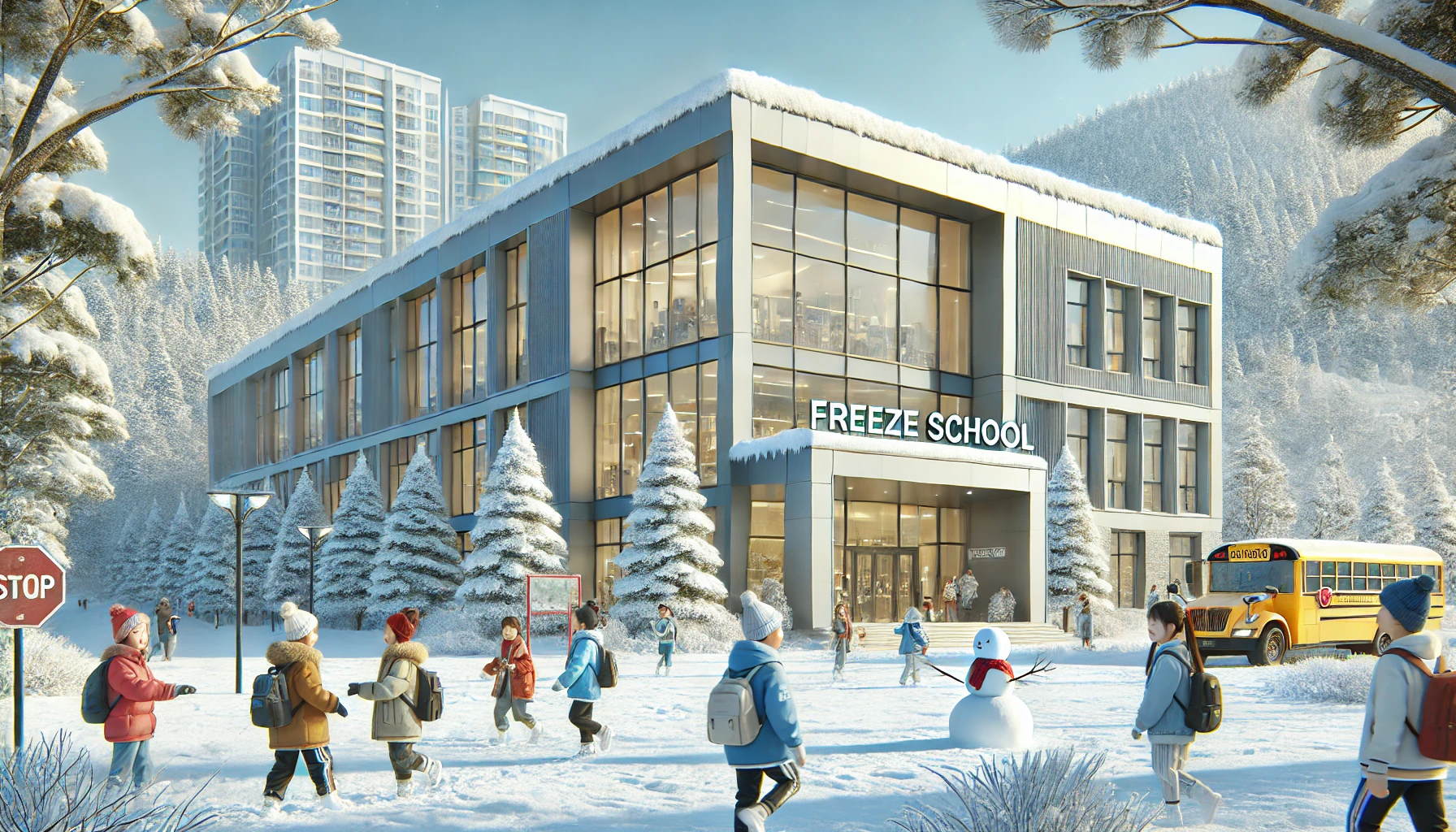Introduction: Understanding Freeze School
In various educational discussions, the term “Freeze School” stands as an intriguing concept that many seek to understand. Whether related to innovative learning methods, education reform, or digital schooling, “Freeze School” carries different interpretations depending on its application. While it may appear specialized to some, its significance is undeniable in different realms of academic structure, learning methodologies, and institutional evolution. But what exactly does “Freeze School” represent, and how does it influence different aspects of education and student experience? Let’s take a closer look at the impact and meaning of “Freeze School.”
The Conceptual Perspective: A Name with Meaning?
“Freeze School” is more than just a name—it’s a concept that carries significance depending on its contextual use. It can be linked to structured academic pauses, adaptive learning models, or even digital education strategies. However, does this term merely describe a temporary break in schooling, or does it extend into broader educational innovations and advancements?
From an academic standpoint, names like “Freeze School” represent a blend of flexibility, efficiency, and student-centered adaptation. Whether as a policy, a methodology, or a framework, “Freeze School” has the potential to shape discussions and reforms across various educational sectors.
Freeze School in Modern Education
The Role of Freeze School in Academic Institutions
The power of an adaptive education model cannot be underestimated. From hybrid learning systems to specialized academic restructuring, the idea behind “Freeze School” helps define the foundation of modern education. Consider policymakers, educators, and institutions that utilize models like “Freeze School” to enhance student engagement, personalized learning, and flexible schooling.
Freeze School in Community and Institutional Development
In today’s rapidly changing world, concepts like “Freeze School” play a role beyond temporary academic decisions—they become part of long-term learning strategies. Whether in local school districts, higher education institutions, or global education frameworks, embracing the significance of “Freeze School” allows schools and learners to create more adaptable and resilient educational experiences.
Freeze School in the Learning and Academic Landscape
The Everyday Impact of Flexible Learning
Have you ever encountered an educational system that instantly adapted to the needs of students? Statements like “This learning method allows students to thrive at their own pace!” or “I recognize the importance of academic flexibility!” highlight the importance of “Freeze School” in shaping academic success and student well-being.
The Role of Freeze School in Education Reform
In modern education, academic flexibility is everything. Whether in distance learning, competency-based education, or alternative schooling, concepts like “Freeze School” take on substantial value when associated with student-centered learning, accessibility, and academic success. Implementing such frameworks ensures that students receive education tailored to their needs and aspirations.
The Market Perspective: Is Freeze School a Game Changer?
Flexibility as a Driving Factor in Modern Education
Education experts and policymakers have long discussed the power of flexibility in academic institutions and student engagement. Is “Freeze School” simply a policy, or does it serve a deeper purpose in fostering personalized learning, academic innovation, and lifelong success?
Some argue that adaptive learning-based education is essential in a world where traditional schooling structures can be rigid. When education professionals emphasize “flexibility equals student retention and success,” they refer to the growing need for personalized and accessible education models.
The Longevity and Influence of Freeze School
Others believe that while adaptive school models may evolve, structured frameworks like “Freeze School” ensure educational continuity and long-term academic improvements. Whether in K-12 education, higher learning, or professional development programs, a flexible learning model like “Freeze School” maintains long-term student engagement and institutional progress.
Freeze School in Digital Education and E-Learning
Technology, Online Learning, and Virtual Classrooms
From adaptive learning platforms to digital classrooms, “Freeze School” has the potential to shape e-learning and virtual education trends. In the digital age, where remote learning and personalized education models thrive, having an adaptable schooling system is just as valuable as maintaining structured curriculums.
The Evolution of Learning in the Modern Era
In global education, new teaching models frequently emerge, gaining momentum and reshaping student expectations. Whether used in digital education, blended learning strategies, or competency-based programs, “Freeze School” represents a symbol of flexibility and academic progress.
When Does Freeze School Make a Difference?
The Importance of Student-Centered Education
While academic models serve as learning frameworks, their significance grows with student engagement and institutional support. When does “Freeze School” make the most difference? In education policies, student retention programs, and personalized learning strategies, a strong flexible learning model ensures long-term impact and academic success.
The Role of Flexibility in Academic Growth
Understanding the importance of institutional adaptability, personalized learning experiences, and student success strategies is crucial in a world where education is continuously evolving. Being mindful of how a term like “Freeze School” fits into modern academic frameworks ensures that it remains a relevant and influential concept.
Conclusion: The Impact and Future of Freeze School
“Freeze School,” as an educational model and concept, goes beyond being just a policy. It represents a broader aspect of learning—enhancing academic accessibility, increasing student success, and creating opportunities for flexible education. Whether in traditional schools, online learning platforms, or alternative education systems, “Freeze School” has a presence that shapes the way students learn and institutions evolve.
However, with great significance comes great responsibility. While flexible education models offer competitive advantages, they should also be designed with sustainability and student outcomes in mind. Striking a balance between adaptive learning and structured curriculums ensures that “Freeze School” continues to be a valuable framework in modern education.
In a world where student needs drive educational trends, “Freeze School” reminds us that sometimes, going beyond the standard can make all the difference—if done thoughtfully and with a focus on long-term student engagement and academic success.






